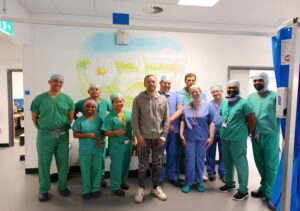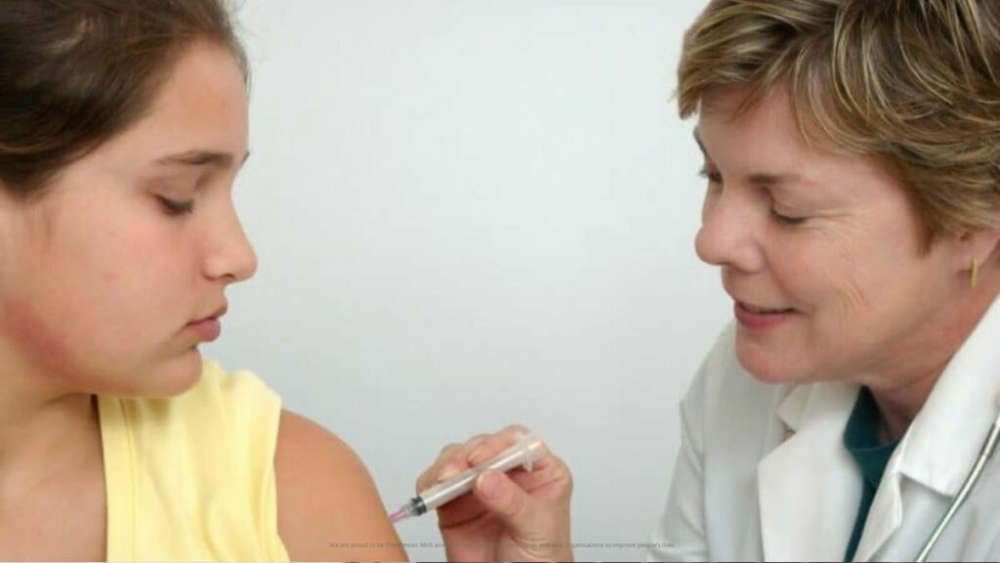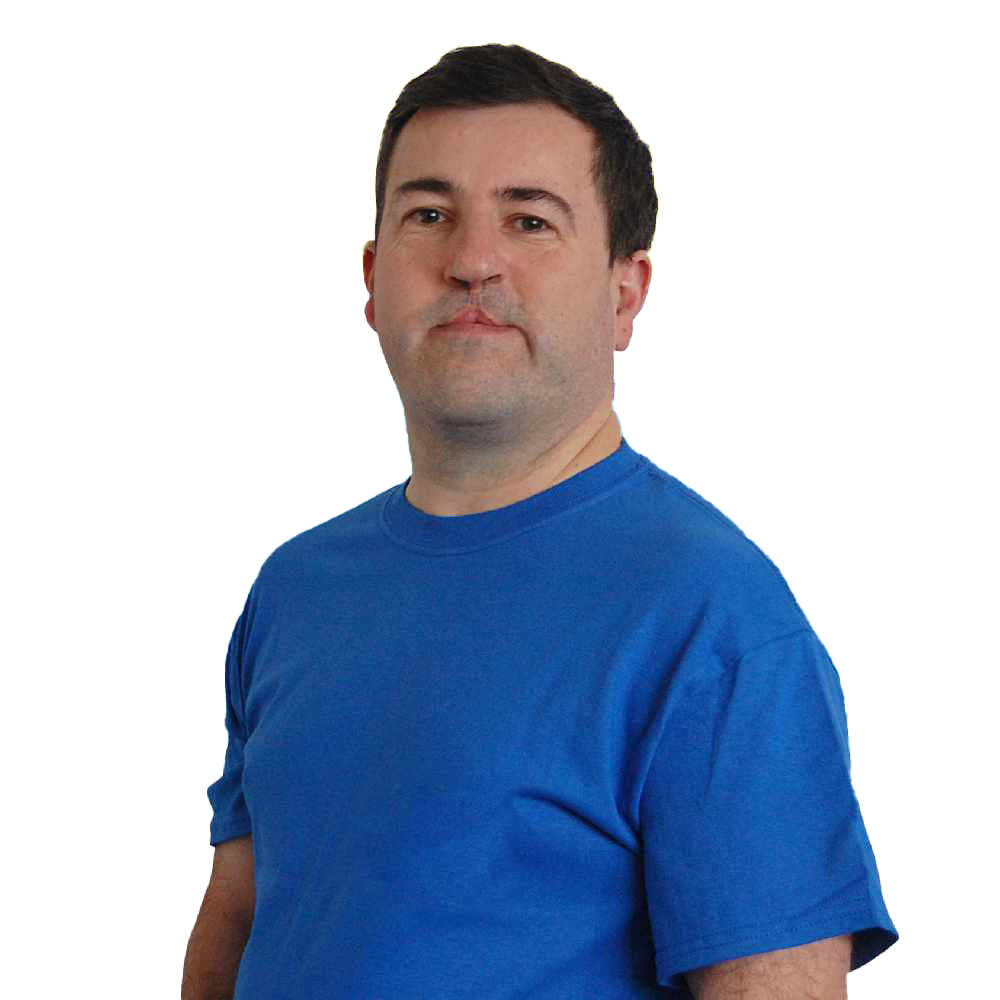
The NHS in Devon has reduced the number of patients waiting a long time for spinal surgery by nearly 80% between May 2023 and January 2024 by revolutionising the approach to caring for patients.
The number of patients in Devon waiting 78 weeks or more for spinal surgical treatment was 31 at the end of January 2023. This is 79% lower than May 2023 when that number stood at 131.
NHS organisations in Devon have worked with the NHS England Getting It Right First Time (GIRFT) team lead by Professor Tim Briggs, NHS England South West regional colleagues and the Peninsula Spinal Operational Delivery Network (ODN), to implement the One Devon Elective Pilot programme for spinal surgical services in the county to improve the ways of working.
Mr Henry Budd, Consultant Spinal Surgeon at the Royal Devon University Healthcare Trust and System Clinical Lead for Spinal Services for the Devon Integrated Care System, said; “Spinal conditions have a huge impact on people day-to-day who suffer from back pain. Although the volumes of patients we are treating in this pilot aren’t as large as for other conditions, such as cataracts, the surgery required is complex. The impact we are making on our patients’ quality of life is huge which is why spinal surgical services has been one of the areas that the One Devon Elective Pilot has focussed on.
“The One Devon Elective Pilot has addressed the challenges causing long waits for patients by adding surgical resource, supporting clinical and management collaboration and establishing a single point of access system across the region, ensuring equity of access to services and streamlined decision making.”
“This new way of working is offering a clinical dividend to patients. We are now entering a new phase of delivering joined up spinal services that provide the some of the best quality care available anywhere in the UK, in a timely manner.”
For a number of years elective spinal services in Devon have seen increased demand and reducing capacity. This has been due to growth in emergency trauma demands on the NHS and workforce challenges experienced by the hospitals. It was exacerbated by the lack of routine, elective services that NHS Trusts in Devon were able to provide during the covid-19 pandemic.
NHS England helped to drive a culture change for surgical teams across the NHS in Devon to work differently to maximise activity within clinic and theatre times, enable as much work as possible to take place in a day case settings and to ensure surgeons can work across multiple hospital sites to maximise the use of all of Devon’s theatres.
Dr Nigel Acheson, Chief Medical Officer for NHS Devon, concluded; “The progress the teams have made for spinal patients in Devon is incredible. I am so proud of how everyone has worked together to do the best for our patients. A huge thanks must go to all the staff involved and the efforts put in by all teams. All the health professionals, operational teams and support staff have worked extra hard to allow the additional activity to happen.
“I know we still have work to do but in a year of unprecedented pressures, it is amazing to see what has been achieved by doing things differently and working in a truly collaboratively way.”
The improvements to the spinal waiting lists under the One Devon Elective Pilot were undertaken using the recommendations highlighted in the GIRFT review of spinal surgery in March 2023.
Professor Tim Briggs, Chair of the GIRFT programme and NHSE’s National Director for Clinical Improvement and Elective Recovery, said: “This is a unique pilot that shows the art of the possible when clinical and operational teams work collaboratively across multiple providers to maximise capacity and productivity within a healthcare system.
“The GIRFT team have worked in partnership with One Devon and I am delighted to see the results. All those involved are to be highly congratulated on this significant achievement to reduce spinal surgery waiting times and ultimately deliver an improved service for spinal patients across Devon and Cornwall.”
Off the back of the GIRFT review recommendations, a number of changes and improvements have been made:
- NHS Devon has funded two additional surgeons who work for both University Hospitals Plymouth NHS Trust (UHP) and Royal Devon University Healthcare NHS Foundation Trust (RDUH) in the spinal centres at Derriford Hospital and the Royal Devon and Exeter Hospital.
- There is a multi-disciplinary team meeting between the trusts where they can collaborate on how to treat complex patient cases.
- The spinal centres in Devon have also adopted best practice in terms of productivity for running outpatient clinics and operating theatre lists.
- There is now a streamlined process for patients to access the spinal care they need through single point of access (SPOA). This pathway developed between One Devon and the Peninsula Spinal ODN follows a single, streamlined pathway ensuring patients are seen by the right person, in the right place, at the right time. All patients across the Devon and Cornwall peninsula will have consistent access to spinal care.
- In October 2023, a dedicated spinal surgical service was established at the Exeter Nightingale Hospital and made available to all appropriate patients on spinal referral pathways across Devon.
While patients can choose where they would like to have their treatment, the Nightingale service provides additional capacity for the treatment of lower complexity cases (i.e. sciatica due to disc prolapse). It also benefits from being located within an elective hub centre, eliminating the impact that urgent care pressures present on acute hospital sites with emergency departments. The spinal service at the Exeter Nightingale Hospital is hosted by the RDUH but operates as a Devon-wide asset. The commissioning of this service was a joint venture across Devon.
Mr Greengrass, the first spinal patient to be operated on at the Exeter Nightingale Hospital, said; “I was in at 7.30am and home by 2pm. The hospital is well set up, very efficient and the staff were all lovely.”

 Highway users urged to take extra care as severe cold and icy roads expected this weekend
Highway users urged to take extra care as severe cold and icy roads expected this weekend
 Parents urged to keep children at home if unwell
Parents urged to keep children at home if unwell
 NHS in ‘calmer waters but not out of danger’ yet as winter viruses still circulating
NHS in ‘calmer waters but not out of danger’ yet as winter viruses still circulating
 Give children the best start: Vaccinate this New Year
Give children the best start: Vaccinate this New Year













